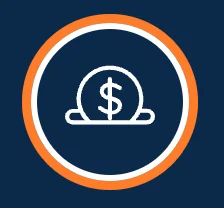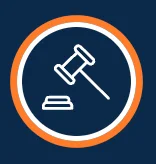If you drive a car in South Carolina, then you know that state law requires you to carry a certain amount of auto insurance. Most people associate auto insurance with liability coverage. This is where your insurer pays for bodily injury or property damage that you cause to someone else in an accident. South Carolina is an “at-fault” state, meaning the negligent driver is always responsible for their victim’s losses, this can be tricky when dealing with an uninsured motorist claim.
The Basics of South Carolina Uninsured Motorist Coverage
There are, of course, situations where the at-fault driver is either unknown or fails to comply with South Carolina’s liability coverage requirements. In these cases, a person who suffers losses in a car accident may still be able to receive compensation under their insurance policy. In addition to liability coverage, South Carolina law also requires all drivers to carry uninsured motorist (UM) coverage.
UM coverage is just what it sounds like. It pays you in the event of an accident with an uninsured motorist. It also applies to accidents involving an unknown “John Doe” driver.
Typically, your UM coverage is equal to your liability coverage. This means that if you only purchase the minimum amount of insurance coverage required by South Carolina law, you will carry:
- $25,000 in UM coverage for bodily injury to one person in an accident.
- $50,000 in UM coverage for bodily injury to multiple persons in the same accident.
- $25,000 in UM coverage for all property damage in a single accident.
It is important not to confuse uninsured motorist (UM) with underinsured motorist (UIM) coverage.
UIM deals with situations where you have identified the at-fault driver and they have insurance, but their liability coverage is not enough to fully pay for your personal injury and/or property damage. Unlike UM coverage, UIM coverage is optional. South Carolina law requires your auto insurance company to offer UIM coverage, but you do not have to purchase it.
You cannot apply both UM and UIM coverage to the same accident. It is possible in certain cases, however, to “stack” or apply multiple UM policies to the same accident. For example, if you and your spouse have vehicles on the same UM policy, it may be possible to double the bodily injury limit. (You cannot stack UM coverage for property damage.)
Suing a “John Doe” for a Car Accident in South Carolina
Pursuing an uninsured motorist claim requires a motorist to follow certain procedures. South Carolina law imposes three “conditions” on anyone seeking coverage under their UM policy:
- The insured person, or someone acting on their behalf, must file an accident report with the police “within a reasonable time” following said accident.
- The personal injury or property damage was the result of “physical contact” with the unknown driver’s vehicle; if there was no physical contact, an eyewitness who was not the owner or operator of the insured vehicle must sign an affidavit attesting to the fact the accident occurred.
- The insured person must demonstrate they were “not negligent” in failing to identify the vehicle or driver who hit them.
Even if you never identify the at-fault driver, you may still need to file a personal injury lawsuit to receive UM benefits. This is accomplished by using an unknown defendant, i.e., a “John Doe.” Since there is no defendant to serve, the law requires you to serve the clerk of the court where the case is filed.
What typically happens in these cases is that your insurance company defends the lawsuit in the name of the John Doe. If the driver is later identified, however, you can still sue them directly. It is also possible to name other defendants besides John Doe whose negligent actions may have contributed to your accident.
South Carolina Supreme Court: John Doe Complaint Does Not Need to Be Filed with Affidavit
As previously noted, South Carolina law requires the plaintiff in an uninsured motorist case to file an eyewitness affidavit if their accident did not involve “physical contact” with the unknown vehicle.
Earlier this year, the South Carolina Supreme Court clarified that this affidavit does not have to be filed before the John Doe lawsuit itself. Rather, it can be filed afterward or upon demand of the insurance company defending the case.
The case before the Court, Rice v. Doe, involved a passenger–the plaintiff in this case–who was injured in an accident involving an unknown driver. The plaintiff was riding in his friend’s car at the time. According to the plaintiff, the unknown driver crossed the center line into their lane. The plaintiff’s friend then swerved to avoid a collision. This, in turn, caused physical injuries to the plaintiff.
The plaintiff subsequently filed his John Doe lawsuit. The insurance company defended the case. It moved to dismiss the lawsuit, arguing the plaintiff failed to provide an eyewitness affidavit, which the insurer maintained was a necessary precondition of bringing the case. The next day, the plaintiff produced the affidavit.
The trial court initially declined to dismiss the case. But just before the trial was set to begin, a different judge agreed with the insurance company that the plaintiff should have filed the affidavit at the same time as his complaint. Since he failed to do so, dismissal was warranted. The South Carolina Court of Appeals later reversed that decision on the grounds the second judge had no authority to overrule the first judge’s decision on this issue.
The insurer then appealed to the South Carolina Supreme Court. The Court held that the filing of the witness affidavit was “not a condition precedent to bringing the John Doe action.” The reason was simple: Nothing in the statute imposed such a requirement. Now, the Court acknowledged that it makes sense for a plaintiff to file their lawsuit and the affidavit at the same time. However, the failure to do so in this case did not prevent the plaintiff from proceeding with his lawsuit.
Contact a Greenville Car Accident Attorney Today
Uninsured motorist cases often put accident victims in the position of having to fight their own insurance companies in court. This is where you need to work with an experienced Greenville car accident lawyer whose only interest is helping you receive the compensation you deserve. Contact Jordan Law Center today to schedule a consultation.







“There is not enough GREAT THINGS I could say about Jordan Law Center.”